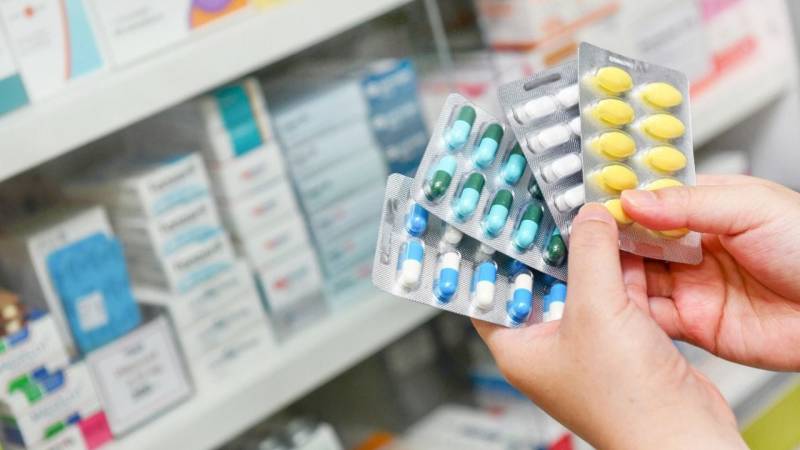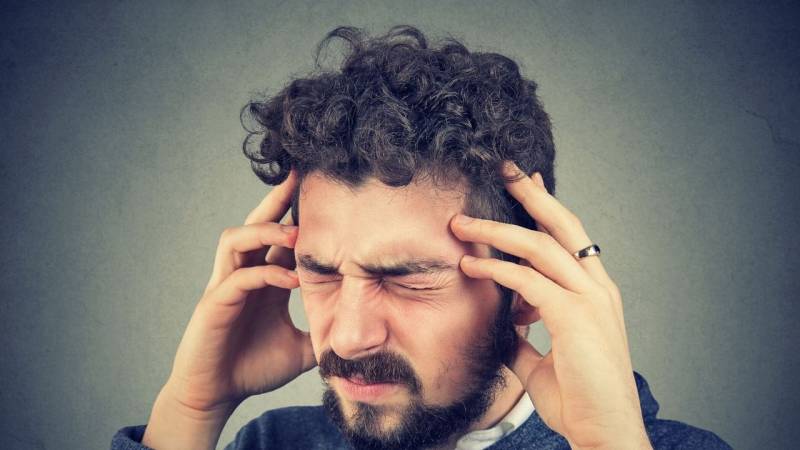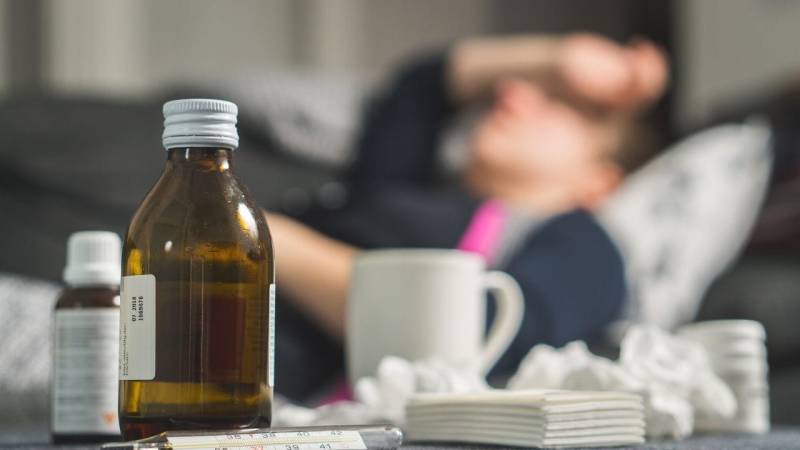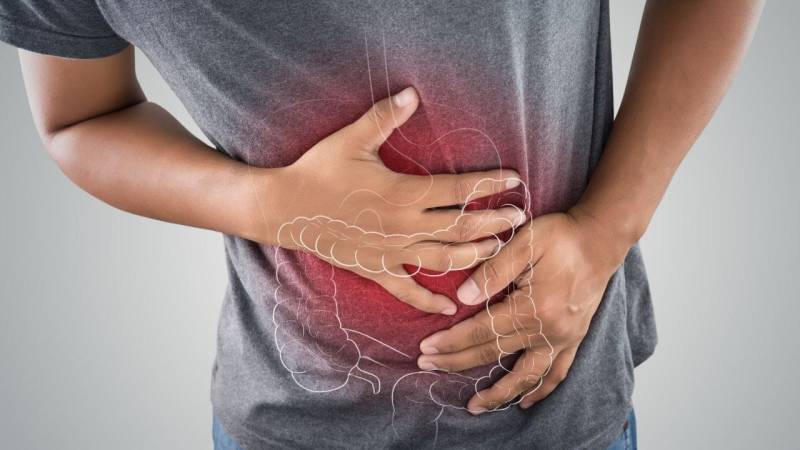
Medicines for Preppers - Your home pharmacy for a crisis
👉 The key facts from this guide
- It is important to have a stock of medicines in case of emergency, to be able to act. Your body is your most essential tool to survive.
- Basic medicines that you should always have in stock are pain relievers, medicines for diarrhea and vomiting, allergy medications, and remedies for treating skin problems.
- For a flu or cold, rest, fresh air, and plenty of fluids are mainly helpful. Combination preparations against colds are often not effective and consist mainly of pain relievers.
- Medicines against diarrhea and vomiting are essential for stomach and intestinal complaints. A gastrointestinal infection can lead to massive water loss and, in the worst case, be life-threatening.
- Also remember medicines for children and personal medicines that you take regularly. Additionally, you should store vitamins and electrolytes, especially if fresh fruits and vegetables are scarce.
What is most important in a crisis? Of course: being well-prepared.
However, all the preparation is useless if you are sick and weak. Your body is your most significant tool for survival.
When the going gets tough, you have to be full of energy. That's why it's essential to stock up on medication.
This list below will make you feel safer in an emergency (like a blackout.
Let's get started.
Note on Recommendations
First, a note: I'm not a doctor or pharmacist. I'm just sharing my experiences with you. Please consult a doctor about the medications you are taking. I also do not assume any liability for any damages, injuries, etc. of any kind. You always act on your responsibility. See also my disclaimer.
Furthermore, I am a friend of natural remedies. There is a wealth of home remedies for constipation, vomiting, bloating or pain.
A good prepper not only buys medication, but also knows many herbs and plants and their effects.
For me, prepping is associated with Survival and Bushcraft. It's important to have the skills and methods to handle a difficult, dangerous situation, whether it's in a city or in the wilderness.
These basic medicines you must always have in stock
Before we dive in, I want to stress the importance of having these medicines at home, regardless of whether a crisis has occurred. You must always treat underlying health conditions immediately.
I always have the following medicines in my medical cabinet. Here's the emergency list:
| Illness, Condition | Medicine (Active Ingredient) |
|---|---|
| Pain and fever | Paracetamol (Analgesic) or Ibuprofen |
| Diarrhea | Imodium (Loperamide) |
| Vomiting | Vomex A (Dimenhydrinate) |
| Insect bites and allergies | Fenistil Gel and Fenistil Tablets (Dimetindene Maleate) |
| Scrapes, burns, and sunburn | Bepanthen Cream (Dexpanthenol) |
Pain relief medicines for preppers

It is advisable that you always have sufficient painkillers with you.
If you are seriously injured or need time to heal, painkillers will keep you going.
Although painkillers do not cure diseases, they help you function.
And that is exactly what matters in an emergency:
You need to function.
Furthermore, most painkillers have an anti-inflammatory and fever-reducing effect. They not only help with acute accidents, but also with headaches, migraines, menstrual cramps, joint pain, and so on.
When the situation relaxes again, you can recover.
Here are my recommendations for painkillers:
- Paracetamol
- Ibuprofen
- Aspirin, ASA (Acetylsalicylic acid)
But be careful: Aspirin / ASA (Acetylsalicylic acid) has various side effects and can thin the blood for up to 5 days. Ibuprofen also has a mild blood-thinning effect. This means that wound healing is hindered and there is a risk of bleeding from the acetylsalicylic acid in case of a bleeding injury.
Therefore, it is best to use Paracetamol.
If you are seriously injured and bleeding, do not take Aspirin or ASA.
Now, here are some details about the different pain types and the recommended active ingredient:
| Type of Pain | Active Ingredient and possibly Medication |
|---|---|
| Feverish / flu-like infections, general pain | Active ingredient paracetamol |
| Pain caused by inflammation, fever, general pain | Active ingredient ibuprofen |
| Muscle or joint pain | Active ingredient diclofenac |
| Tension, sciatica, lumbago | Active ingredients like ibuprofen, acetylsalicylic acid or diclofenac, e.g., Finalgon ointment, Voltaren, ABC patches |
| Bruises and strains | Active ingredients like chondroitin polysulfate and salicylic acid, e.g., Mobilat (or more natural: ThermaCare and compresses for cold and heat) |
Cold or Flu

Attention, the flu is not the same as a cold.
If you get a real flu, then you feel much worse.
And the problem is: For both, basically only drink a lot, ventilate regularly, and rest help.
Almost all known combination preparations that can be found in the pharmacy only alleviate discomfort and do not combat flu or cold viruses. And most medicines often consist mostly of pain relievers. You can simply take those.
There are medications that are supposed to help against the flu. For example, Grippostad, Boxagrippal, Aspirin COMPLEX, or WICK Daymed.
But take a close look at what the ingredients are.
Among other ingredients, Grippostad contains Paracetamol, Ascorbic acid (vitamin C), caffeine, and Chlorphenamine maleate (antiallergenic).
Do you notice something? Just take Paracetamol and have a cup of coffee. Eat some vegetables or fruit, and you already have vitamin C in your body.
I advise you: Stay away from these combination preparations for colds. This is also the result of an NDR investigation on cold remedies: expensive, but useless.
Rest - and if you feel terrible, take a pain reliever for fever and discomfort.
Even for sore throats or coughs, there is little you can do. Most preparations only numb your throat.
Is there a medication for the coronavirus / COVID-19?
Currently, no medication against the coronavirus is known and researched. (As of March 1st, 2020)
However, there are indications that the following may help (source):
- an anti-viral drug against Ebola infections
- a combination of flu and HIV drugs
- a malaria drug containing the active ingredient chloroquine
Which drugs help against viruses? Which against bacteria?
For a bacterial infection, the doctor prescribes antibiotics. One well-known antibiotic is penicillin.
Antibiotics, however, do not help against viruses.
There are so-called antiviral drugs, but these only help against individual types of viruses.
Often, however, the body's own defense has to fight the viruses. Here, only rest, fresh air, and plenty of fluids help.
Gastrointestinal Medicines for Preppers

A gastrointestinal infection can end badly. Especially if you experience diarrhea and vomiting.
Because then you lose a massive amount of water. And your body consists largely of water.
The consequences: your blood thickens, nutrients no longer reach your organs. In the end, your organs fail.
So, you need medication against:
| Gastrointestinal Issues | Example Medication |
|---|---|
| Diarrhea | Perenterol, Imodium akut, Loperamide |
| Vomiting | Vomex A, Iberogast |
| Constipation | Dulcolax Dragees, Laxoberal Laxative Tablets |
| Flatulence | Lefax, Simethicon-ratiopharm, Iberogast |
| Heartburn | Simagel, Rennie, Talcid |
| Poisoning | Charcoal Tablets |
Skin Medications
You would rather not develop a skin allergy. Burns or small wounds can also significantly restrict your daily life.
| Main Problem, Suffering | Example Medication |
|---|---|
| Allergy for external use | Fenistil Gel |
| Allergies inside the body | Fenistil tablets or with the active ingredient Loratadine |
| Mosquito bites and insect bites | Fenistil Gel |
| Sunburn and minor burns | Bepanthen |
| Scratches | Bepanthen |
| Fungal infections | Canesten (Vagisan for vaginal fungal infections) |
| Blisters and severe burns | Flammazine cream |
Furthermore, make sure to have wound disinfectants on hand, such as alcohol pads, Octenisept solution, or Hansaplast wound spray.
Medications for Eye and Ear Problems
Your eyes and ears are your cameras and microphones.
Therefore, keep them as healthy as possible. Impaired vision or ear pain can prevent clear thinking.
If you have conjunctivitis, it is best to use eye drops.
Medications such as Berberil, Euphrasia, Vidisa, or Bepanthen eye drops and ointment can help.
For earache, it's best to take painkillers such as ibuprofen, paracetamol, or aspirin.
Medicines for Children

Don't just think about medication for adults, but also for your kids.
Here is the basic equipment I always have at home:
| Illness, Condition | Example Medication |
|---|---|
| Pain and fever | Nurofen or IBU ratiopharm Fever Syrup (active substance: ibuprofen) |
| Nasal congestion | Otriven |
| Diarrhea | Loperamide acute |
| Vomiting | Vomacur |
Additional Tips
Vitamins and Electrolytes
For prevention, also get vitamins and electrolytes.
Especially when fresh fruits and vegetables are scarce, you need vitamins to supply your body with them.
Vitamin deficiency is no longer known in our regions. But if you only eat rice or noodles, you will need dietary supplements, such as vitamins, trace elements, and minerals, after a few weeks.
Also read: "The Best Survival Foods (10+ Years Shelf Life)".
Personal Medications
If you take medication regularly, make sure to prepare for that as well.
Are you diabetic? Then you require a supply of insulin or medications like Metformin.
Do you suffer from asthma? Then stock up on your inhaler.
Tools, Devices, Equipment, Materials
To make your own diagnoses or treat yourself, I recommend that every prepper store the following things at home:
- Thermometer (digital / classic)
- Tick remover
- Tweezers
- Disposable scalpel
- Needles and syringes
- Disposable gloves
- Bandage scissors
- Safety pins
- Poison extractor / suction pump for snake bites and insect stings
- Plaster bandages, Gauze bandages, Elastic bandages, Bandage packs
- Plasters in different sizes
Summary
As I recommended at the beginning of the guide:
Stock up on basic medications.
Then, search through my list here and choose the medications that you consider particularly important.
Now to a significant point: Regularly check which medications have been opened and which ones are no longer usable.
Dispose of the medications (in household waste or at the pharmacy) and replace them with new ones right away.
Short and sweet: Questions and Answers
What is Prepping? The term "Prepping" derives from the attitude of always being prepared: Be prepared! This has led to a scene of people who prepare themselves for various disaster situations through individual measures.
What do you need as a Prepper? On the one hand, you require good equipment and the necessary supplies to survive independently for several weeks or months. On the other hand, you also require the right skills in the areas of survival, bushcraft, outdoor.
What emergencies can occur? These can be: power failure, diseases such as viruses and bacteria, nuclear meltdown, economic collapse, terrorist attacks, cyber-attacks, electromagnetic pulse, wars, natural disasters such as floods, storms, droughts, earthquakes.
What is SHTF? S.H.T.F. stands for "Shit hits the Fan". That means, in translation: "Shit hits the fan." This means: An ultimate catastrophe has occurred. Preppers use this term to describe the apocalypse.
And now I want to know from you, is there an important drug missing?
Do you have ideas on what I could improve?

Sources for the guide
Infos zur Grippe: https://www.erkaeltungs-ratgeber.de/grippe/behandlung
Der Unterschied zwischen Bakterien und Viren: https://www.apotheken-umschau.de/Infektion/Der-Unterschied-zwischen-Bakterien-und-Viren-209555.html
Viren: https://www.infektionsschutz.de/infektionskrankheiten/erregerarten/viren/

Author of the guide
Martin Gebhardt
Hey, I'm Martin. On my blog, you will learn the basics and numerous details about living in the wild. I think survival, bushcraft and the good life in nature are the keys to happiness. Find me here on Instagram or on YouTube. You can find more about my mission on the About Me page.
Was this guide helpful?
30 people found this guide helpful.
5.00 out of 5 points (30 Ratings)
Comments (0)
This post may contain affiliate links. So if you click on the links and make a purchase, I will receive a small commission at no additional cost to you. Click here, to learn more about it.


